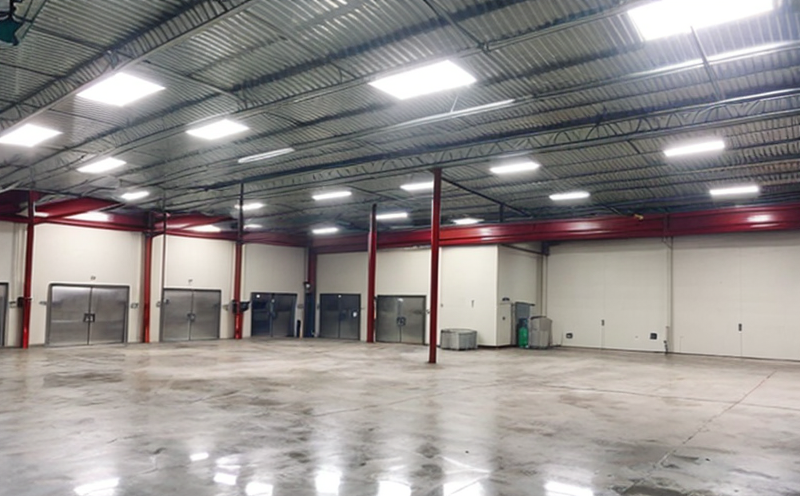Air quality in food facility inspection
The importance of maintaining air quality within a food facility cannot be overstated. Air quality is a critical component of ensuring food safety and hygiene, which are paramount to the health and well-being of consumers worldwide. Poor indoor air quality can lead to contamination of food products with harmful microorganisms such as bacteria, mold spores, or viruses. These contaminants can not only affect product quality but also pose significant risks to public health.
According to international standards like ISO 4818 and ASTM E2356, the air quality within a food facility should be controlled to ensure compliance with strict hygiene protocols. The presence of particulate matter (PM), volatile organic compounds (VOCs), and other contaminants must be monitored and regulated to meet regulatory requirements set by authorities such as the Food and Drug Administration (FDA) and the European Commission.
Our laboratory provides a comprehensive suite of services dedicated to ensuring that food facilities maintain optimal air quality. Our expertise lies in the analysis of airborne contaminants, particulate matter, and chemical pollutants using advanced instrumentation like scanning electron microscopy (SEM), gas chromatography-mass spectrometry (GC-MS), and high-efficiency particle air (HEPA) filtration systems.
The first step in our inspection process is to conduct a thorough assessment of the facility's layout and ventilation system. This allows us to identify potential sources of contamination, such as HVAC ducts or poorly designed exhaust systems. Once these areas are identified, we proceed with sampling and analysis.
- Sampling Sites: Our team selects strategic locations around the facility where air quality can be most accurately assessed. These sites might include entry points, storage areas, production zones, and ventilation exhausts.
- Testing Parameters: We measure key parameters such as particulate matter (PM2.5 and PM10), ozone levels, carbon dioxide concentration, formaldehyde, and other relevant contaminants.
After collecting the samples, our laboratory technicians use state-of-the-art analytical techniques to determine the presence of harmful substances in the air. This data is then used to create a detailed report that outlines any areas of concern and provides recommendations for improvement. Our goal is not only to meet current regulatory standards but also to exceed them by ensuring the highest level of hygiene possible.
By addressing issues related to air quality, food facilities can significantly reduce the risk of contamination incidents. This proactive approach helps maintain a clean environment conducive to producing safe and high-quality products. Moreover, it fosters an atmosphere where employees feel secure in their workspaces, enhancing overall productivity and morale within the organization.
Our commitment to excellence extends beyond mere compliance; we strive for continuous improvement through regular monitoring and updates based on emerging trends and best practices in food safety and hygiene.
Quality and Reliability Assurance
The quality and reliability assurance process plays a crucial role in maintaining consistent standards across all aspects of our air quality inspection services. We understand that every facility has unique challenges when it comes to managing its indoor environment, which is why we offer customized solutions tailored specifically for your needs.
Our quality control team works closely with clients from the onset of any project to ensure they fully understand what will be expected during each phase of testing and reporting. From initial site visits through final analysis reports, transparency is key in providing accurate information that can help guide necessary changes towards better practices.
We adhere strictly to international standards such as ISO 14001 for environmental management systems, which ensures our methodologies are robust enough to handle even the most stringent requirements set forth by regulatory bodies. Additionally, we maintain memberships with industry associations like the American Society for Testing and Materials (ASTM) and the British Standards Institution (BSI), allowing us access to cutting-edge research and developments that influence future directions within our field.
Our laboratories are equipped with advanced technology capable of detecting trace amounts of contaminants down to parts per billion levels, ensuring no detail goes unnoticed. By leveraging this precision alongside years of experience in food safety and hygiene inspections, we provide unparalleled accuracy when delivering results back to clients.
To further enhance reliability, our team undergoes continuous training programs aimed at staying updated on new technologies and methodologies within the field. Regular audits are conducted both internally and externally by third parties accredited under ISO 17025 to verify compliance with all applicable regulations.
Ultimately, we aim to build long-term partnerships built upon trust and mutual respect. With robust quality assurance measures in place, you can rest assured knowing that each service provided meets or exceeds expectations set forth by relevant authorities worldwide.
Environmental and Sustainability Contributions
The pursuit of sustainability goes hand-in-hand with our commitment to food safety and hygiene inspections. By addressing air quality issues within facilities, we contribute positively towards reducing waste generation while promoting efficient resource use throughout the entire production process.
One way we support environmental stewardship is by encouraging clients to implement green practices such as energy-efficient lighting systems, water recycling initiatives, and sustainable packaging materials. These changes not only benefit the immediate environment but also help reduce operational costs over time.
In addition to these direct contributions, our work helps minimize negative impacts associated with improper disposal of hazardous waste generated during food processing operations. Proper management of such wastes ensures compliance with local laws governing solid waste management and hazardous material handling procedures.
Our services extend beyond just measuring current conditions; they also play a vital role in helping facilities plan for future growth while remaining mindful of their ecological footprint. Through strategic consultations, we guide clients toward adopting more sustainable business models that balance profitability with environmental responsibility.
By integrating our expertise into your existing operations, you can look forward to seeing improvements not only in terms of public health but also in promoting responsible practices throughout the supply chain. Together, let's work towards creating a healthier planet for future generations.





